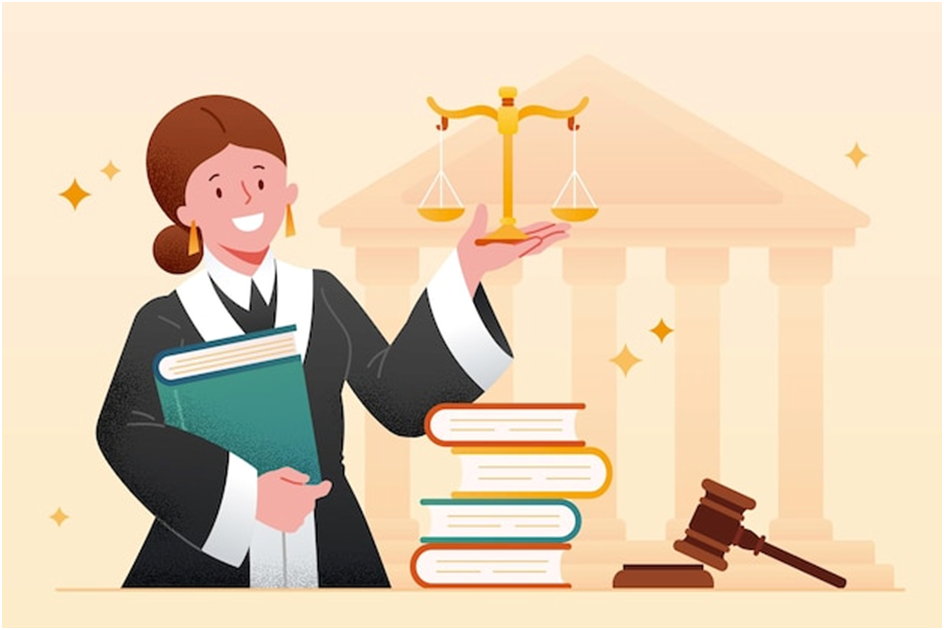- Introduction to lawyers
- Difference between a lawyer and an attorney
Types of Lawyers
- Criminal Defense Lawyers
- Civil Litigation Lawyers
- Corporate Lawyers
- Family Lawyers
- Personal Injury Lawyers
- Immigration Lawyers
- Real Estate Lawyers
- Intellectual Property Lawyers
Roles and Responsibilities of a Lawyer
- Providing legal advice
- Representing clients in court
- Drafting legal documents
- Negotiating settlements
- Protecting client rights
How to Become a Lawyer?
- H3: Educational Requirements
- H3: Passing the Bar Exam
- H3: Gaining Practical Experience
Skills Required to Be a Successful Lawyer
- Strong analytical and problem-solving skills
- Excellent communication and negotiation skills
- Research and writing proficiency
- Time management and organization
Why Do You Need a Lawyer?
- Legal representation in disputes
- Protecting your rights and interests
- Avoiding costly legal mistakes
How to Choose the Right Lawyer?
- Checking credentials and experience
- Reading client reviews and testimonials
- Consulting before hiring
Cost of Hiring a Lawyer
- Hourly rates vs. flat fees
- Contingency fees in personal injury cases
- Factors that affect lawyer fees
Challenges Lawyers Face
- High-stress profession
- Long working hours
- Ethical dilemmas and client expectations
Future of the Legal Profession
- Impact of technology and AI in law
- Rise of online legal services
- Changing legal industry trends
Conclusion
- Summary of key takeaways
- Importance of hiring a lawyer when needed
FAQs
- What is the difference between a lawyer and an attorney?
- How much does a lawyer charge per hour?
- Can I represent myself in court instead of hiring a lawyer?
- What happens if I cannot afford a lawyer?
- How do I find a good lawyer for my case?
 Lawyer – Everything You Need to Know
Lawyer – Everything You Need to Know
Introduction to Lawyers
A lawyer is a legal professional who provides advice, representation, and assistance in legal matters. Whether you’re facing a lawsuit, drafting a contract, or dealing with a family dispute, a lawyer helps you navigate the complexities of the legal system.
Many people confuse the terms lawyer and attorney. While both refer to individuals trained in law, an attorney is a lawyer who is licensed to practice law and represent clients in court. Not all lawyers take the bar exam or work in a courtroom—some focus on legal consulting, corporate law, or legal writing.
Let’s explore the different types of lawyers and their roles in the legal system.
Types of Lawyers
Criminal Defense Lawyers
Criminal defense lawyers represent individuals accused of crimes. Their responsibilities include:
- Defending clients in criminal court cases
- Negotiating plea deals with prosecutors
- Gathering evidence and witnesses
- Ensuring clients receive a fair trial
Civil Litigation Lawyers
Civil litigation lawyers handle non-criminal disputes, such as:
- Business conflicts and contract disputes
- Property and real estate disputes
- Personal lawsuits and liability cases
Corporate Lawyers
Corporate lawyers specialize in business law, assisting companies with:
- Drafting contracts and legal agreements
- Handling mergers and acquisitions
- Ensuring regulatory compliance
- Resolving internal legal disputes
Family Lawyers
A family lawyer handles legal issues related to family matters, including:
- Divorce and child custody cases
- Adoption and guardianship
- Prenuptial and postnuptial agreements
- Domestic violence protection
Personal Injury Lawyers
Personal injury lawyers represent individuals injured due to negligence. They help clients by:
- Filing claims for medical malpractice, car accidents, workplace injuries, etc.
- Negotiating settlements with insurance companies
- Representing clients in court to seek compensation
Immigration Lawyers
Immigration lawyers assist individuals with immigration-related issues such as:
- Visa applications and renewals
- Citizenship and naturalization
- Deportation defense
- Employment-based immigration
Real Estate Lawyers
Real estate lawyers help clients with property-related legal matters, including:
- Buying and selling property transactions
- Landlord-tenant disputes
- Property title issues
- Zoning and land use regulations
Intellectual Property Lawyers
Intellectual property (IP) lawyers help protect the rights of individuals and businesses over their creative works. Their responsibilities include:
- Copyright and trademark registration
- Patent applications
- Handling cases of intellectual property theft
Roles and Responsibilities of a Lawyer
Lawyers perform various tasks depending on their area of specialization. Some of their key responsibilities include:
- Providing Legal Advice: Offering guidance on legal matters.
- Representing Clients in Court: Defending or prosecuting cases.
- Drafting Legal Documents: Preparing contracts, wills, and other legal agreements.
- Negotiating Settlements: Resolving disputes outside the courtroom.
- Protecting Client Rights: Ensuring fair treatment under the law.
How to Become a Lawyer?
Educational Requirements
Becoming a lawyer requires a bachelor’s degree, followed by law school (Juris Doctor – JD degree).
Passing the Bar Exam
After law school, aspiring lawyers must pass the bar exam to obtain a license to practice law.
Gaining Practical Experience
Many lawyers gain experience through internships, clerkships, or working under experienced attorneys before practicing independently.
Skills Required to Be a Successful Lawyer
- Analytical and Problem-Solving Skills: Lawyers must analyze cases and find legal solutions.
- Research and Writing Skills: Strong legal research and documentation abilities are essential.
- Communication and Negotiation Skills: Lawyers need to argue cases effectively in court.
- Time Management and Organization: Handling multiple cases efficiently is critical.
Why Do You Need a Lawyer?
- Legal Representation: Navigating complex legal matters.
- Protecting Your Rights: Ensuring fair treatment.
- Avoiding Costly Mistakes: Missteps in legal matters can have serious consequences.
How to Choose the Right Lawyer?
- Check credentials and experience.
- Read client reviews and testimonials.
- Schedule a consultation before hiring.
Cost of Hiring a Lawyer
- Hourly Fees: Some lawyers charge per hour.
- Flat Fees: Fixed rates for specific legal services.
- Contingency Fees: Common in personal injury cases—lawyers get paid only if you win.
Challenges Lawyers Face
- High-Stress Profession – Lawyers often deal with complex, stressful cases.
- Ethical Dilemmas – Balancing legal and moral responsibilities can be challenging.
- Long Working Hours – Many lawyers work overtime to handle cases.
Future of the Legal Profession
- Technology in Law: AI is revolutionizing legal research and case management.
- Online Legal Services: More clients seek virtual legal assistance.
- Changing Legal Landscape: New laws and regulations constantly shape the profession.
Conclusion
Lawyers play a critical role in ensuring justice and protecting rights. Whether for business, personal, or criminal matters, hiring the right lawyer can make a significant difference in legal outcomes.
FAQs
- What is the difference between a lawyer and an attorney?
- An attorney can represent clients in court, while a lawyer may not have passed the bar exam.
- How much does a lawyer charge per hour?
- Fees vary but typically range from $100 to $500 per hour.
- Can I represent myself in court?
- Yes, but legal representation improves your chances of success.
- What if I cannot afford a lawyer?
- You may qualify for a public defender or legal aid services.
How do I find a good lawyer for my case?
- Check experience, reviews, and schedule a consultation.
